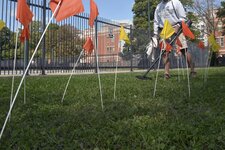el padron
Hero Member
- Oct 29, 2010
- 920
- 503
- Detector(s) used
- The content of this space is contingent upon principals acceptance, execution and or final disposition / funding of an approved product endorsement agreement
- Primary Interest:
- Other
What constitutes an "amateur archeologist", and under what circumstances could an educated, seasoned and well versed metal detectorist reasonably declare him / herself as such?
Last edited:
Upvote
0





 PEACE:RONB
PEACE:RONB 

